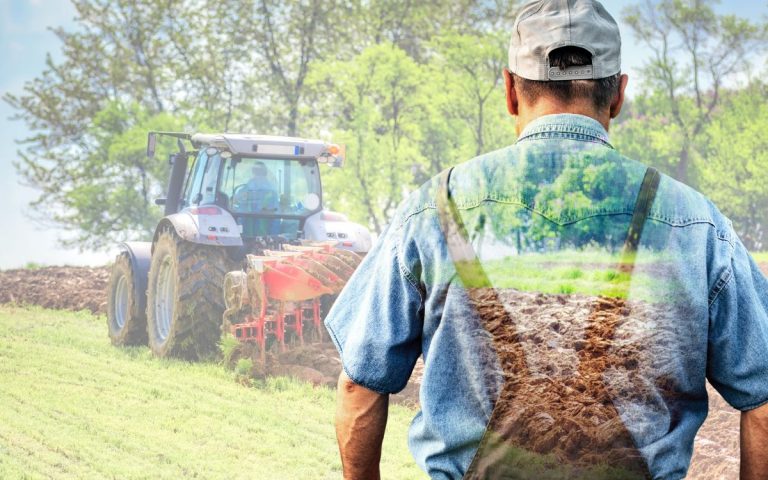
From 1st April 2022, the regulations around the use of red diesel—also known as tractor diesel—are changing. It will no longer be permitted for use in certain ways, and by specific industries. For the most part, the agricultural industry will not be affected by red diesel duty equalisation and farmers will be able to carry on using tractor diesel in much the same ways as before. However, accepted use of red diesel in agriculture has become more restricted and there are exceptions. It’s important to keep up-to-date with what’s changing, and why, so you can be sure to remain compliant. Here are 6 things farmers need to know.
1. The rules refer to how red diesel is used, not who uses it
This means the government is not saying that red diesel may be used by farmers as a category of people, but instead saying that red diesel may be used for agricultural purposes. The distinction is important, because from April 2022 red diesel may no longer be used for certain purposes that fall outside of government-defined agricultural activities. So, if you use red diesel for a purpose outside of the ways you would ordinarily use it on the farm, you may be breaking the law. A list of accepted ways in which red diesel can continue to be used is published on the government website. Here, extensive details are provided on how red diesel can be used for movement of machinery, produce, livestock and waste, when this is done in relation to agriculture, horticulture or forestry.
Red diesel reality check:
Accepted use:
“A farmer transporting his livestock from the farm to the mart for sale at auction.”
Non accepted use:
“Farmers using red diesel in tractors when maintaining recreational facilities, such as tennis courts or parks”
2. Red diesel can only be used in certain types of vehicle
The government also specifies that red diesel can only be used in certain types of vehicles, equipment and machinery, specifically, agricultural vehicles used by the occupier of the land, owner of the crop, or contractor or other person engaged to perform an agricultural operation on the land.
The agreement applies to agricultural tractors, agricultural engines, agricultural material handlers, light agricultural vehicles, and vehicles used between different parts of land. It can also be used in certain ‘special’ machines and appliances, such as diggers, cranes and mowing machines, when used for agricultural purposes. Red diesel can be used in off-road tractors on public roads only for agricultural purposes, cutting verges, hedges or trees bordering public roads, and road gritting.
Red diesel reality check:
Accepted use:
“A farmer using his tractor to move stones from his quarry to his land, via a public road, to build ditches or drainage as part of the farming enterprise.”
Non-accepted use:
“A farmer using his tractor to move stones from his quarry, via a public road, to the site of a third-party company as part of a commercial business transaction.”
3. All ‘on farm, by ‘live-in’ farm machinery’ activities qualify for red diesel use
There has been some confusion around permitted and non-permitted agricultural use, but there is a simple rule to live by to make sure your farm stays red diesel compliant. The government has said that if you use rebated fuel in agricultural vehicles, machines and appliances for purposes relating to agriculture, you will also be able to use them for any other purpose on private land where they are ordinarily kept.
Put simply, a farmer can use agricultural machinery for all purposes (accepted and non-accepted), as long as you are using agricultural machinery that lives on the farm and the work is carried out on the land in which the vehicle is kept.
Red diesel reality check:
To use the scenario of building a shed (a non-accepted agricultural activity):
Accepted use:
“A farmer who uses his own farm machinery to build a shed on his land.”
Non-accepted use:
“A farmer who hires farm machinery to build a shed on his land.”
“A farmer who uses his own farm machinery to build a shed on a neighbour’s land.”
4. Affected farmers need to act
From April, some farmers will need supplies of both non-rebated fuel and rebated fuel. To stay compliant, farmers will need to use white diesel or alternative fuel for non-permitted jobs, to drain and flush out machinery tanks between permitted and non-permitted jobs and keep separate storage tanks for rebated and non-rebated fuel. HMRC will have the power to spot-check and issue fines or seize machinery from farmers who break the rules.
When hiring machinery, particularly if the machinery is likely to be used on construction sites too, farmers should check if there is an obligation from the hire company to use white diesel instead of red. Farmers who fall foul of this may incur costs from the hire company for flushing out red diesel from the tank on its return.
Red diesel reality check:
Accepted use:
“Using different machinery with the correct fuel for permitted and non-permitted jobs.”
Non-accepted use:
“Topping up machinery tanks with white diesel for non-permitted jobs, without first flushing out red diesel traces.”
5. Rule changes mean red alert for fuel theft
With fuel theft on the rise, any large stores of fuel—especially on exposed sites such as farms—are likely to be targeted. Now, because of duty equalisation, this risk is compounded, as more users fill their storage tanks with acceptable alternatives to red diesel. As DERV and other fuels do not feature the giveaway red dye that designates them for off-road use only and are generally more expensive (45ppl increase in duty for white vs red diesel), they are even more attractive for thieves – and the financial loss for farmers can be greater. Farmers can protect themselves from fuel theft by investing in the right security equipment, such as smart tanks with locks, and a telemetry system for remote fuel monitoring.
Red diesel reality check:
Fuel theft is a growing threat for farmers. White diesel stores on-site compound this risk. Take action to protect these valuable commodities.
6. Duty equalisation = a path to a cleaner future
Red diesel reality check:
Red diesel exemptions will not last forever. As carbon neutral plans ramp up, farmers will need to think about using cleaner fuels to future-proof their farm and stay compliant.
Looking for personalised advice on how red diesel duty equalisation might affect your business?



